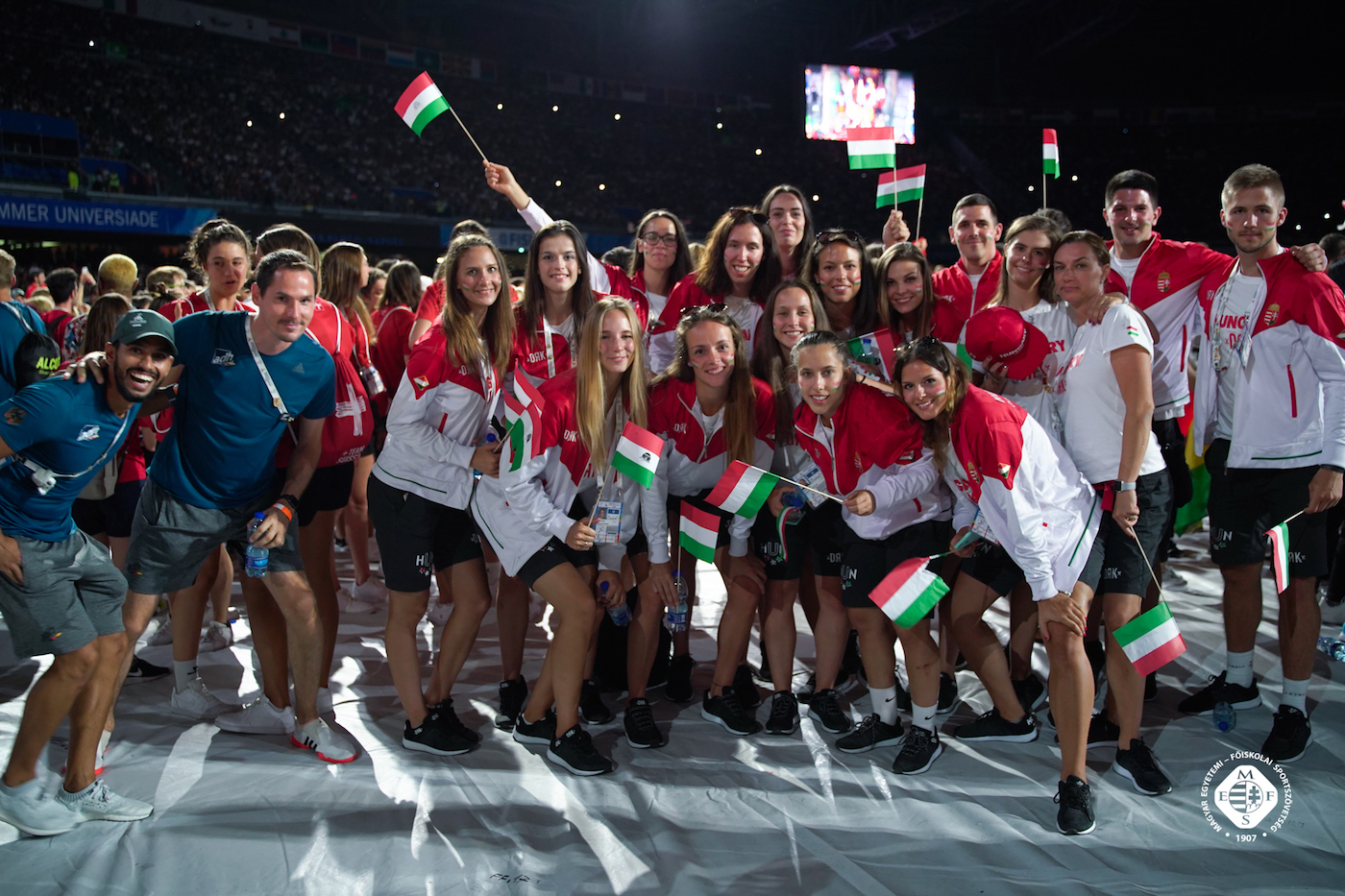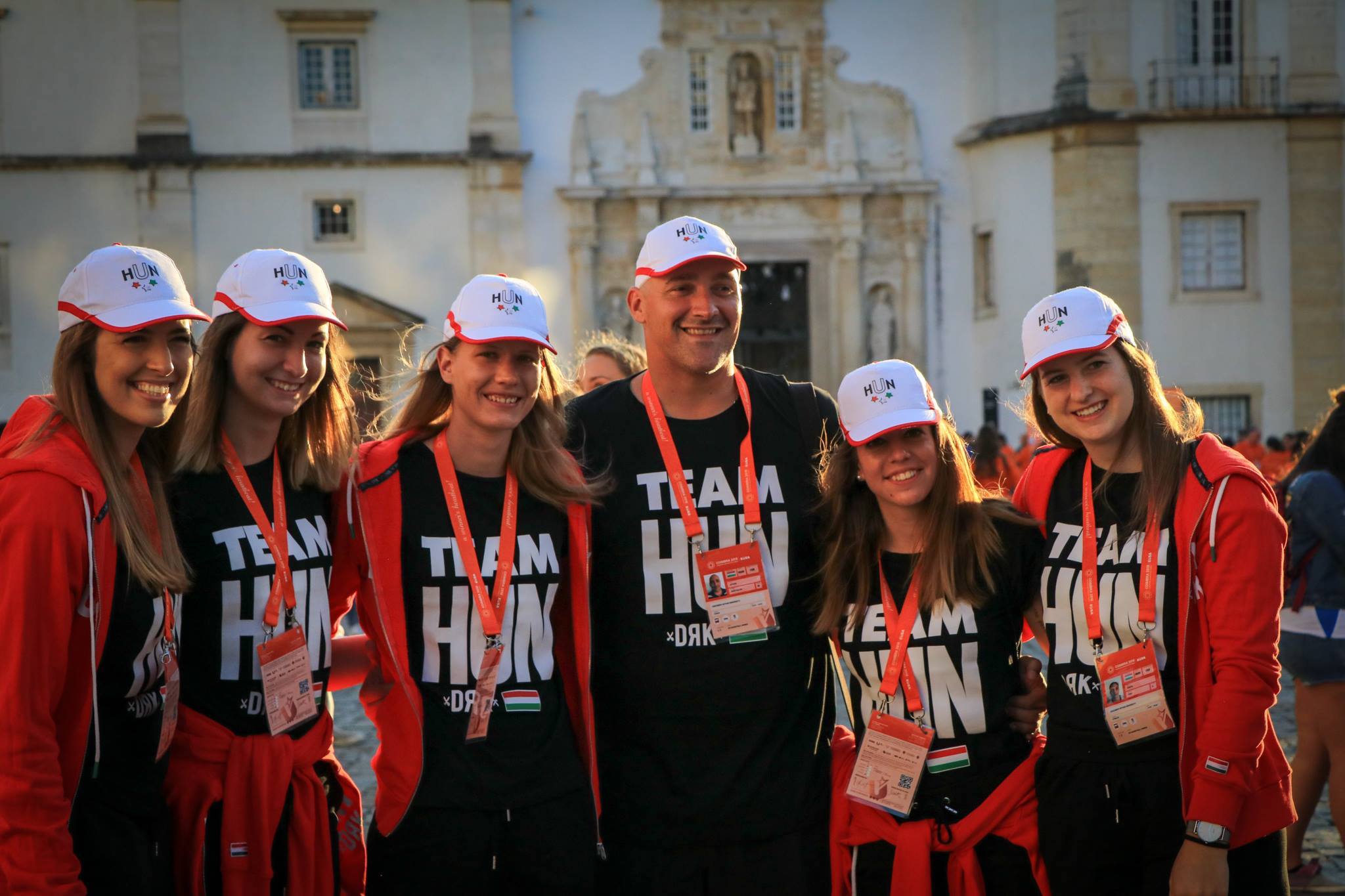
“Away from the impasse of digital distractions, real value communities need to be developed for young people, through high affinity with sports and universities,” stated Prof. Dr. Lajos Mocsai, the President of the Hungarian University-College Sports Association, as he spoke to FISU Student Ambassador Lilla Szekeres. Prof. Dr. Mocsai is also the Rector of the University of Physical Education, and the Co-president of the Hungarian Rectors’ Conference.
The vision of the Hungarian University-College Sports Association (MEFS) is a healthier society based on the successes of talented university athletes and the healthy lifestyles of future intellectuals.
MEFS has established an excellent co-operation with two main higher education representative organisations: the Hungarian Rectors’ Conference (MRK) and the National Conference of Student Governments (HÖOK). The MESF holds the Hungarian University-College National Championships (MEFOB) every academic year, with the aim of deciding a ‘champion’ of university sports competitions, promoting sports among students, and promoting FISU and EUSA competitions as well.
The longer-term goal, according to Prof. Dr. Mocsai, is to create healthy campuses and to support a dual career path, along with a strong emphasis on physiotherapy and injury prevention; including elite and recreational sports.

Prof. Dr. Mocsai believes that daily physical education for young people must be achieved through instrinsic motivation and then the appropriate infrastructural background must be provided for that: gyms, swimming pools, sport courts, indoor sports fields, correctional trainings, music and dance group sessions, etc.
“The basic way of thinking should be changed in such a way that the balance between medicine, traditional health care and doing sport should tilt to the side of sport,” he said. “The link between lifestyle, quality of life and recreational sport needs to be strengthened.”
According to Mocsai, three sessions of 80-90 minutes of planned sports activities per week are necessary. “One of the most important components of cognitive intellectual development is personality development; which can be excellently realised through sports activity,” he said. “Endurance sports help a lot in the connection and quality of certain brain processes, and conditional work develops another type of self-image, decisiveness and personality.”
Mocsai’s development plan, which is yet to be adopted, would have four dimensions: operations, organisation of events, sustainability and a ‘facility map’ of the universities. To implement this plan, funding, facilities and content are required.
“The main goal is to spend 1% of our budget on maintaining lifestyle and quality of life,” he added.
In his opinion, one of the goals for metropolitan university leaders and city leaders is to consider the following question: Which sport does a particular university undertake to manage, and in what way can the university represent the city? In return, the city undertakes to feed the university sports system by expanding and integrating existing sports facilities.
“Sports professional training is an intellectual field where 250,000 people take part,” said Mocsai about MEFS efforts to provide the appropriate number and quality of professional training. “At university, it is the last chance to give young people a lifestyle approach that is integrated into practice.”